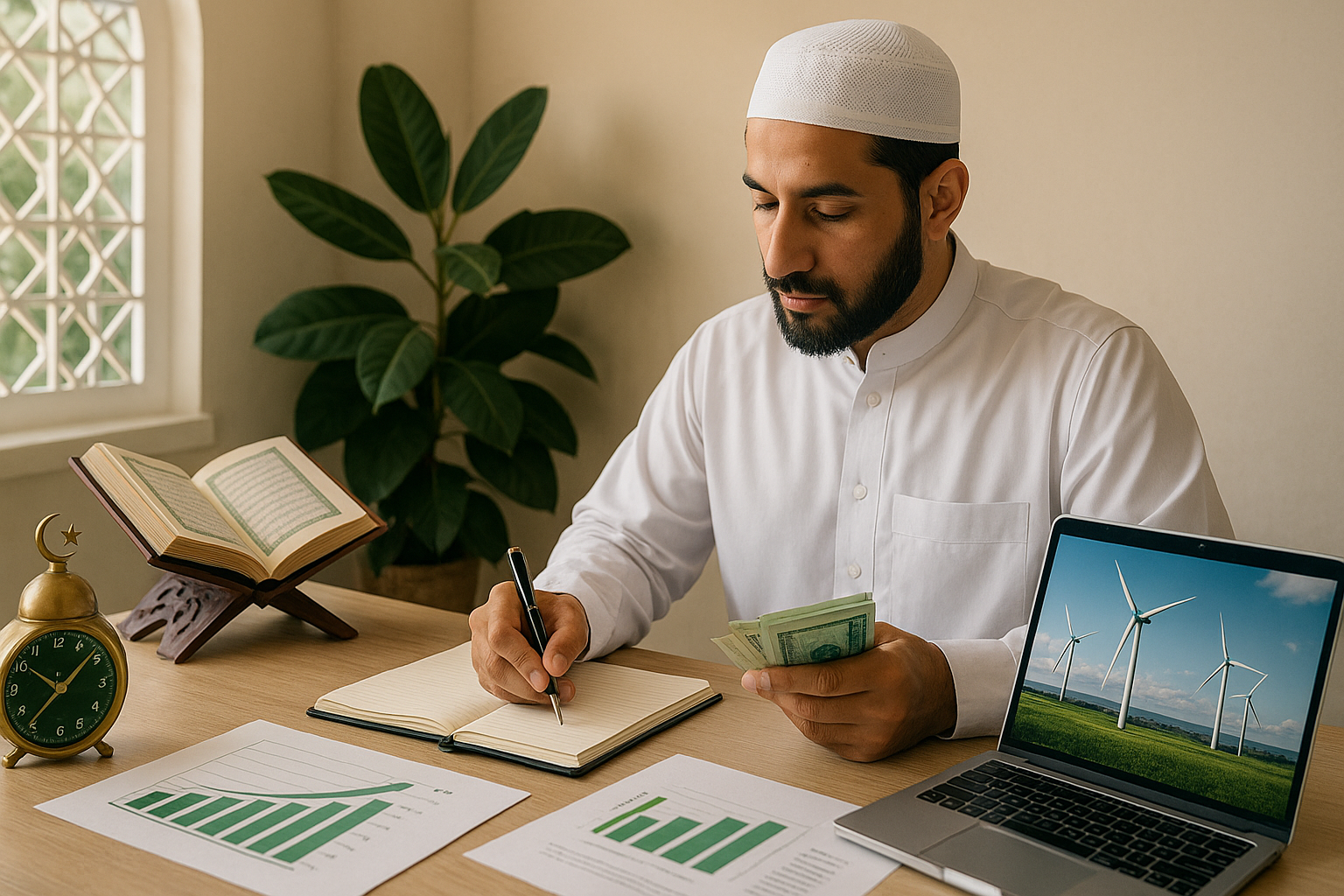Faith-Based Finance for a Greener Planet: The Strategic Role of Green Sukuk
The UNDP-KFH report highlights green sukuk as a promising Shariah-compliant tool to finance climate and sustainable development goals. Despite strong growth and investor interest, regulatory gaps and limited private sector engagement remain key barriers.

In a comprehensive report, the United Nations Development Programme (UNDP), together with the Istanbul International Center for Private Sector in Development and Kuwait Finance House (KFH), explores how green sukuk, a Shariah-compliant investment instrument, can play a pivotal role in financing sustainable development. Spearheaded by researchers Dr. Gulçin Salingan and Dr. Muniruddeen Lallmahomood, the report offers a detailed look into the market dynamics, regulatory frameworks, and transformative potential of green sukuk in addressing the world’s climate and development challenges. With Islamic finance principles emphasizing ethical investment, environmental stewardship, and risk sharing, green sukuk are uniquely positioned to mobilize capital for the green transition while appealing to a broad investor base.
Green Sukuk Gaining Momentum, But Market Still Nascent
The report charts the remarkable rise of green sukuk since their inception in 2017, highlighting a market rebound following the COVID-19 pandemic and global economic instability. By the third quarter of 2024, green and sustainability sukuk issuance had reached $11 billion, indicating renewed investor confidence and government commitment to energy transition agendas. Despite this momentum, green sukuk remain a small share of the global ESG bond universe, just 1.6% of all ESG bonds and around 6.8% of total sukuk issued. However, the report estimates that between $30 and $50 billion could be mobilized annually through green sukuk by 2025 if regulatory bottlenecks are addressed and investor confidence continues to grow. This signals both a market opportunity and a policy imperative.
Investor Appetite Grows Amid Pricing Advantage
Investor interest in green and sustainability sukuk is steadily rising, supported by pricing benefits such as the “greenium”, where ESG-labeled instruments are traded at a premium due to higher demand. According to survey data presented in the report, 55% of investors are planning to allocate funds toward green and sustainability sukuk in the coming years. Oversubscription rates for these instruments reached 4.4 times, compared to 3.3 times for conventional sukuk, reflecting robust appetite. Drivers of this demand include ESG mandates, ethical investment preferences, and alignment with global sustainability goals. Western institutional investors, especially in Europe and the U.S., are also showing increased interest, which could diversify the investor base for green sukuk, traditionally concentrated in Organization of Islamic Cooperation (OIC) member states.
Government Leadership Is Catalyzing Market Growth
The report underscores the vital role of governments in shaping the green sukuk ecosystem, highlighting Malaysia and Indonesia as model jurisdictions. Malaysia was the first to introduce a dedicated SRI Sukuk Framework in 2014, laying the foundation for corporate issuances like Tadau Energy’s groundbreaking green sukuk in 2017. Through fiscal incentives, grant schemes, and alignment with international standards such as ICMA’s Green Bond Principles, Malaysia has created an ecosystem where green sukuk issuance is both feasible and attractive. Similarly, Indonesia’s integration of climate budget tagging (CBT) into its fiscal planning since 2016 has enabled the government to channel over $3.9 billion into green projects through sovereign sukuk, funding renewable energy, sustainable transport, and waste management initiatives. These government actions have helped create a green yield curve, enabling better pricing for private sector issuers and building investor confidence in the market.
Bridging the Gap Between Shariah and ESG Standards
A key contribution of the report is its emphasis on the natural alignment between Islamic finance principles and global ESG frameworks. Green sukuk operate as “use of proceeds” instruments, similar to green bonds, but with an added layer of ethical oversight under Shariah law. The ICMA’s Green Bond Principles, along with ASEAN Green Bond Standards, are widely applied to green sukuk to ensure transparency, proper impact reporting, and effective allocation of proceeds. The report also draws attention to Maqasid al-Shariah, a framework emphasizing human, societal, environmental, economic, and governance objectives, as a natural bridge to ESG mandates. This convergence reinforces the legitimacy of green sukuk as ethical and impactful investment tools and helps counter greenwashing risks. Issuers are encouraged to engage in impact reporting that not only tracks emissions reduction but also quantifies broader social benefits like job creation and improved livelihoods.
Unlocking Private Sector Potential Through Reform
Despite strong investor interest, the private sector’s role in green sukuk issuance remains limited. Barriers include the high cost of external certification, insufficient ESG data, low awareness of Islamic sustainable finance, and fragmented regulatory guidance. The report recommends targeted incentives, such as grant schemes to offset issuance costs, and broader reforms to create enabling ecosystems, ranging from sustainable finance taxonomies to public-private partnerships. Case studies suggest that when properly supported, private issuers can leverage green sukuk to finance decarbonization strategies, including clean energy, EV infrastructure, and circular economy projects. Innovations such as digital sukuk platforms and blockchain verification are also emerging to boost market transparency and efficiency.
The report presents green sukuk not simply as financial products but as instruments of transformation, bridging Islamic ethical values with the global climate agenda. With the right mix of government leadership, private sector engagement, regulatory clarity, and investor education, green sukuk could evolve from niche instruments into mainstream vehicles for sustainable development. Their growth represents a promising frontier in climate finance, particularly in regions where Shariah compliance is not only a preference but a foundation for doing business. As the world seeks inclusive, equitable, and resilient financial solutions, green sukuk offer a compelling model for aligning faith, finance, and the future.
- FIRST PUBLISHED IN:
- Devdiscourse










